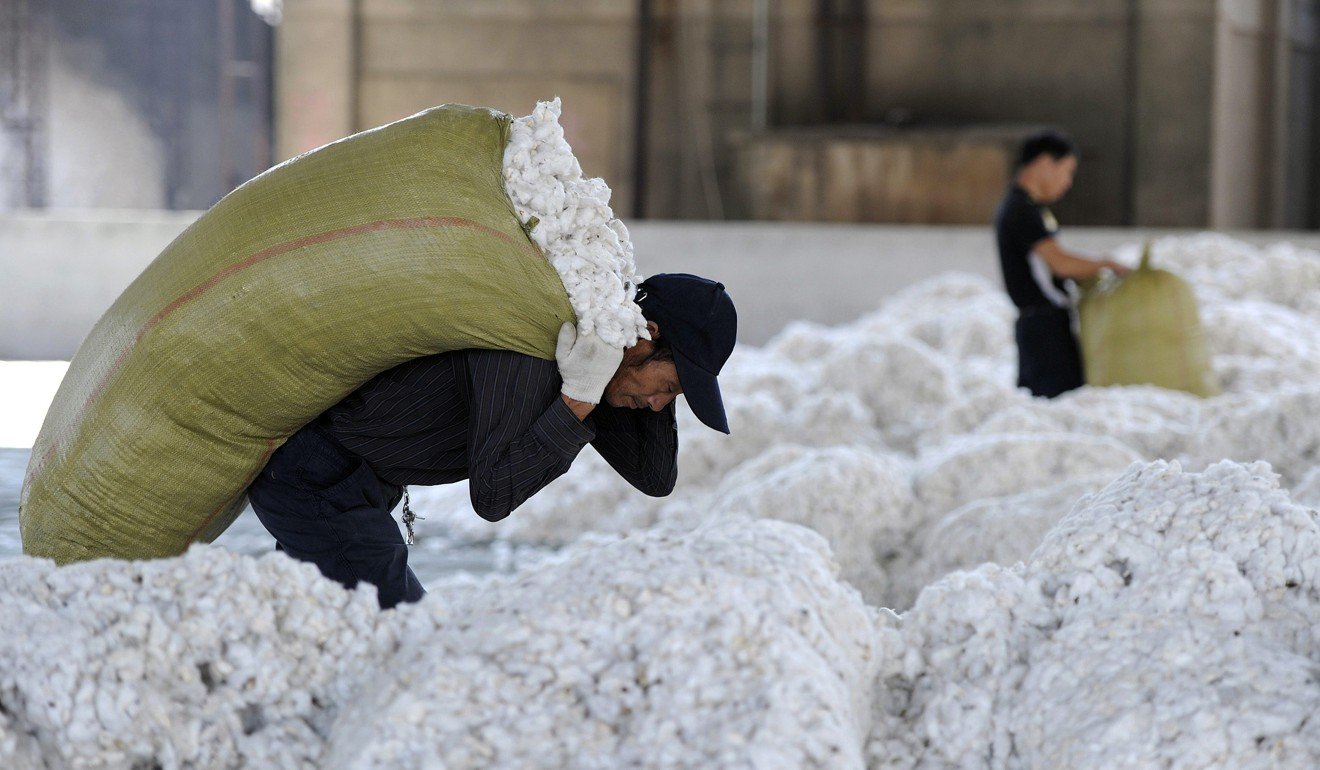
How banned hybrid seeds boost China’s cotton harvest
Researcher hails ‘milestone discovery in agricultural science’, with implications for all genetically modified plants
China is one of the world’s top cotton producers partly because of a widespread sowing of banned seeds, according to a joint study by US and Chinese scientists.
An 11-year investigation spanning six Chinese provinces suggested that the black-market cotton seeds cut pesticide use and boosted cotton yields thanks to their long-term resistance to pests.
The study published this month in the latest issue of the journal Proceedings of the National Academy of Sciences of the United States (PNAS) said the seeds were a hybrid of genetically modified (GM) and traditional cotton plants. The production and trading of such seeds are banned in China.
But in small cotton plantations without much machinery, such illegitimate hybrid seeds might perform better than “pure-bred” GM seeds produced by large biotech companies, the researchers said.
“This is a milestone discovery in agricultural science,” said Professor Wu Kongming, a lead scientist of the research with the Chinese Academy of Agricultural Sciences’ Institute of Plant Protection in Beijing.
“Our findings are not only important to cotton production, it also sheds new light on the management and regulation of genetically modified plants.”

China used to be the world’s biggest cotton producer, according to the US Department of Agriculture, but it says India produced more last year, almost 5.9 million tonnes, compared with China’s production of nearly 5 million.
Many factors had hurt Indian cotton farms, such as drought and flooding, but none was more destructive than its farmers’ use of pure transgenic seeds, according to previous research.
The GM cotton used in India was artificially engineered to produce a family of proteins harmless to human and animals but capable of producing chemicals, known as Bt toxins, that were deadly to certain plant-eating worms.
The Bt cotton seeds, though costlier, substantially reduced labour and pesticide costs and were quickly adopted by the vast majority of Indian cotton plantations.
But some worms evolved to acquire a resistance to certain Bt proteins. The resistance issue worsened over the years, causing heavy economic losses to Indian farmers, some of whom committed suicide, prompting mass protests.
In China, farmers were “smarter”, according to the new research.
They crossbred the pure Bt plants from biotech companies with conventional non-BT plants to produce a hybrid species, and then used the hybrid to produce second-generation seeds, or F2 seeds, for sowing.

“F2 seeds are illegal. The government has not approved the production or selling of any of these seeds. They are fake seeds. Making and using them is against the law,” said Professor Zhang Tianzhen, a cotton scientist at Zhejiang University, who was not involved in the study.
During the cross-breeding process, a quarter of the F2 seeds completely lost their Bt trait, rendering them no different from the traditional plant, and hence regarded as “fake”.
But the new study found that since Chinese farmers’ mass use of F2 seeds in 2010, the population of Bt-resisting worms in their cotton farms had gone down significantly. By 2015, the numbers at many monitoring sites was close to zero.
The secret lay in the black-market cotton seeds that had lost their ability to produce Bt toxins during the cross-breeding process, according to the research.
The plants from such seeds allowed normal plant-eating worms to survive, and when they mated with the mutated species carrying Bt-resistant genes, their offspring tended to lose the resistant trait, thus suppressing the mutant species’ evolution.
Now, most cotton farms along the Yangtze River use such seeds, according to the researchers.
The scientists urged the government to amend its regulations and legalise the presently banned seeds.
The practice of using GM plants in farming was still new, they said, so Chinese laws should be regularly updated with the latest scientific findings for economic and environmental advantages.
China’s experience could be useful to other countries, especially India, the researchers added.

